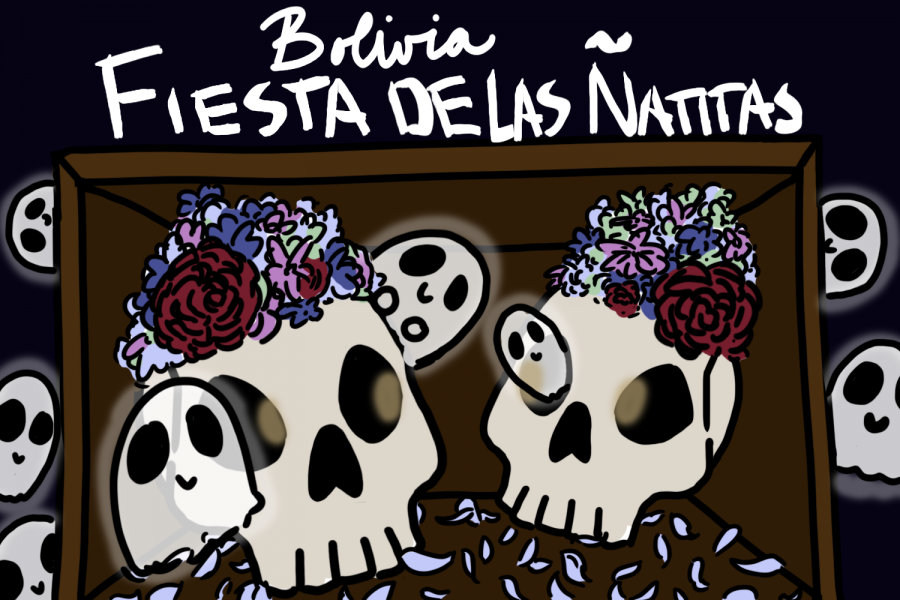Fiesta de las Ñatitas
Bolivia: Fiesta de las Ñatitas
October 31, 2019
The week after All Saints Day and All Souls Day, certain Bolivian citizens retrieve their skulls from private shrines in preparation for the Fiesta de las Ñatitas, a Bolivian celebration honoring the aforementioned ñatitas, or “little pug-nosed ones.”
In other words, the Fiesta de las Ñatitas sees a portion of Bolivia’s population bring forth offerings and “their most cherished possessions”—AKA human skulls believed to share a spiritual bond with their living proprietors—to the local graveyard to celebrate and give gratitude to the spirits of the dead. The tradition originated from the indigenous people of the Bolivian region, the Aymarans, before becoming forced underground upon the arrival of the Spanish in the 16th century. Due to the broader acceptance of Aymaran culture, the practice has now resurfaced as recently as the 1970s.
View this post on Instagram
The ñatitas, believed to bless those in possession of them, are said to be vessels for the soul of the skull’s “former living residents.” In Aymaran culture, skulls are linked to good fortune, fertility and security, and as such, ownership of ñatitas is encouraged through tradition. Possessing skulls that aren’t from family members isn’t uncommon, either. What’s most important is the relationship between the skull’s spirit and its living heritor, which can sometimes lead to skulls, whether they be family heirlooms, archaeological artifacts, medical school excess, etc., being swapped around. The Fiesta de las Ñatitas, not necessarily meant to be an event for outsiders, is a death celebration of great cultural importance to the Aymaran inhabitants of Bolivia.

